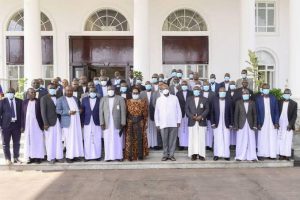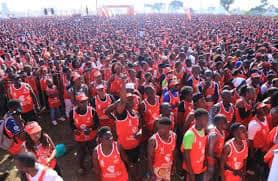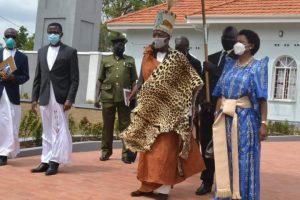
#OutToLunch: Subdividing land failed homeowners, time to flip that real estate model
By Denis Jjuuko A few years ago, a friend was ecstatic. Finally, after years of toiling, working at his day job and some side hustles, he had managed to buy land somewhere in greater Kampala in one of those sprawling so-called estates where Kampala businessmen buy land and subdivide it into small plots each measuring about an eighth of an acre. It didn’t take him long before he started building one of those common three-bedroom houses with high pitched roofs. Once it was to an extent complete, he moved in after throwing a house warming party for a few friends and relatives. He considered himself middle class and liked his neighborhood. The estate in which he bought land had many undeveloped plots and every time somebody came to build, he was super excited. Soon the estate would be full of houses and therefore a little bit more secure. His property value would go up in case he wanted to sell or borrow. Then we realized he no longer talked about his house and neighborhood. We thought after living there for years, he had overgrown the excitement of being a homeowner. Maybe he had started thinking about other stuff. It is a normal thing. Then he started talking negatively about his neighborhood. The estate that drove up his adrenaline was now a source of sorrow. He was thinking of relocating. He said the estate was no longer middle class. Some of us wanted to tell him that it wasn’t middle class from the beginning but age teaches you mellowness. Anyway, each person had built whatever pleased them. A storied house there, shops on the corner plot where men first stopped for a beer before proceeding to their homes every day, an apartment block here, a nursery school there, a Pentecostal church in one corner, a charcoal seller at the top of the street, a chapatti guy next door. A guy who had bought eight plots, making about an acre, had decided to plant eucalyptus trees. Another was planning some mattooke. An “investor” had decided that the estate needed an artificial grass surface in one corner where the so-called middle class could play soccer till 10.00pm or midnight, after all, he had installed the most luminous flood lights he could find on the market. My friend’s most immediate neighbor had probably listened to many inspirational speakers and decided to build a chicken coop. He heard that the poultry keeper’s grand plan included ducks, goose and even turkeys. The chicken woke him up every 3.00am or some other time in the night. The stench from the chicken coop made sure he abandons his garden, where he used to sit on weekends with one hand holding a champagne glass and another a book. And there were still many empty plots. He didn’t know whether someone could be planning a kraal or a pigsty or a brothel. He had tried involving the local leadership but there wasn’t much help. Some of his neighbours didn’t see a problem with anyone keep some chicken. In fact, they were being praised on the neighborhood WhatsApp group for their entrepreneurial ability. Many neighborhoods in Kampala are not different. In fact, a few months ago, somebody had built a kraal in Kololo. Yes, in Kololo, Kampala’s most exclusive suburb. But the neighbors there are “deep waters” so they stopped his entrepreneurship adventure. My friend is now looking for a buyer so he could sell and go to some of those housing estates by the likes of NSSF, Mirembe Villas and Royal Palm. He had always said they were expensive and criticized them for building for “non-Ugandans” but he now agrees that there, it will be hard for somebody to practice their poultry business at home. There is some orderliness. Nobody wakes up to do what pleases them. Since Ugandans love investing in land or real estate, this could be a model that people can try especially those with some capital but for not high-end clients. I know that Buganda Kingdom and NSSF are building such estates in Ssentema but they are very few units. National Housing has land in Bukerere and NSSF in Nsimbe. These among other estates could help take away people’s misery if built affordably and provide significant returns on investment. The writer is a communication and visibility consultant. djjuuko@gmail.com




